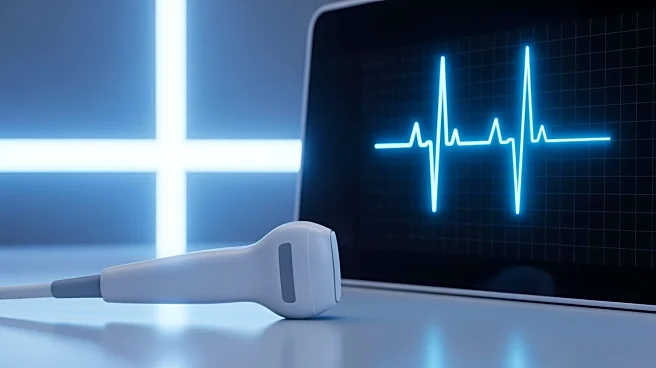What's Happening?
Researchers have developed a model using artificial intelligence to predict biological age from echocardiography, which could improve cardiovascular risk stratification. The study involved training a regression-based video ResNet architecture on echocardiographic
views, excluding individuals with prior cardiac surgery to reduce bias. The ensemble model achieved a mean absolute error of 6.76 years, indicating its accuracy in predicting age. The model's predictions were associated with clinical outcomes, showing that older predicted age groups had worse survival rates. The study highlights the potential of using echocardiographic age prediction to inform preventive care and improve cardiovascular disease risk assessment.
Why It's Important?
The ability to predict biological age from echocardiography has significant implications for cardiovascular disease management. It offers a more precise method for assessing risk, potentially leading to better-targeted interventions and preventive measures. This approach could help healthcare providers identify individuals at higher risk of cardiovascular events, allowing for earlier and more effective treatment strategies. However, ethical considerations must be addressed to prevent misuse of these predictions, such as discrimination by insurance companies based on predicted biological age.
What's Next?
Further research is needed to refine the model and explore its application in diverse populations. Regulatory guidelines should be developed to ensure ethical use of biological age predictions, protecting individuals from potential discrimination. The integration of additional biomarkers could enhance the model's accuracy and applicability. Stakeholders, including healthcare providers and policymakers, must collaborate to establish standards for using AI-driven age predictions in clinical practice.
Beyond the Headlines
The use of AI in predicting biological age raises ethical concerns, particularly regarding privacy and potential discrimination. As these technologies become more accessible, it is crucial to establish safeguards to protect vulnerable populations. The advancements in AI-driven health assessments could lead to shifts in healthcare delivery, emphasizing personalized medicine and preventive care.

















